6-(METHYLAMINO)PURINE
- CAS NO.:443-72-1
- Empirical Formula: C6H7N5
- Molecular Weight: 149.15
- MDL number: MFCD00075820
- EINECS: 207-137-7
- SAFETY DATA SHEET (SDS)
- Update Date: 2024-11-19 23:02:33
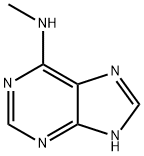
What is 6-(METHYLAMINO)PURINE?
The Uses of 6-(METHYLAMINO)PURINE
6-(Methylamino)purine, 6-methylade is a reagent for substitution of adenine nucleotide analogs containing bicyclohexane ring system locked in northern conformation enhanced potency as py receptor antagonists. Adenine methylation as an epigenic mark has been observed in single-celled organisms and also rarely in mamalian cells.
The Uses of 6-(METHYLAMINO)PURINE
N6-Methyladenine is a modified purine that is commonly found in genomes of prokaryotes, protists, and plants. It is less common in higher eukaryotes and extremely rare in mammals. Like methylation of other DNA residues, N6-methyladenine represents an epigenetic modification that can affect diverse DNA functions, including replication, repair, and expression.
What are the applications of Application
N6-Methyladenine is a useful purine for proteomics research
Definition
ChEBI: A 6-alkylaminopurine that is 9H-purin-6-amine substituted by a methyl group at the amino nitrogen.
Purification Methods
The purine is best purified by recrystallising 2g from 50mL of H2O and 1.2g of charcoal. [UV: Albert & Brown J Chem Soc 2060 1954; UV: Mason J Chem Soc 2071 1954; see also Elion et al. J Am Chem Soc 74 411 1952.] The picrate has m 265o(257o) [Bredereck et al. Chem Ber 81 307 1948]. [Beilstein 26 III/IV 3565.]
Properties of 6-(METHYLAMINO)PURINE
| Melting point: | ≥300 °C |
| Boiling point: | 256.3±50.0 °C(Predicted) |
| Density | 1.57±0.1 g/cm3(Predicted) |
| storage temp. | Keep in dark place,Sealed in dry,Room Temperature |
| solubility | DMSO (Slightly, Heated), Methanol (Slightly, Heated) |
| form | Solid |
| pka | 9.61±0.20(Predicted) |
| color | White to Light Grey |
| CAS DataBase Reference | 443-72-1 |
Safety information for 6-(METHYLAMINO)PURINE
| Signal word | Warning |
| Pictogram(s) |
 Exclamation Mark Irritant GHS07 |
| GHS Hazard Statements |
H302:Acute toxicity,oral H315:Skin corrosion/irritation H319:Serious eye damage/eye irritation H332:Acute toxicity,inhalation H335:Specific target organ toxicity, single exposure;Respiratory tract irritation |
| Precautionary Statement Codes |
P280:Wear protective gloves/protective clothing/eye protection/face protection. P310:Immediately call a POISON CENTER or doctor/physician. P305+P351+P338:IF IN EYES: Rinse cautiously with water for several minutes. Remove contact lenses, if present and easy to do. Continuerinsing. |
Computed Descriptors for 6-(METHYLAMINO)PURINE
New Products
Tert-butyl bis(2-chloroethyl)carbamate 4-Methylphenylacetic acid N-Boc-D-alaninol N-BOC-D/L-ALANINOL 3-Morpholino-1-(4-nitrophenyl)-5,6-dihydropyridin- 2(1H)-one Furan-2,5-Dicarboxylic Acid Tropic acid DIETHYL AMINOMALONATE HYDROCHLORIDE 1,1’-CARBONYLDIIMIDAZOLE R-2-BENZYLOXY PROPIONIC ACID 1,1’-CARBONYLDI (1,2-4 TRIAZOLE) N-METHYL INDAZOLE-3-CARBOXYLIC ACID (2-Hydroxyphenyl)acetonitrile 4-Bromopyrazole 5-BROMO-2CYANO PYRIDINE 5,6-Dimethoxyindanone 5-broMo-2-chloro-N-cyclopentylpyriMidin-4-aMine 2-(Cyanocyclohexyl)acetic acid 4-methoxy-3,5-dinitropyridine 2-aminopropyl benzoate hydrochloride 1-(4-(aminomethyl)benzyl)urea hydrochloride diethyl 2-(2-((tertbutoxycarbonyl)amino) ethyl)malonate tert-butyl 4- (ureidomethyl)benzylcarbamate Ethyl-2-chloro((4-methoxyphenyl)hydrazono)acetateRelated products of tetrahydrofuran
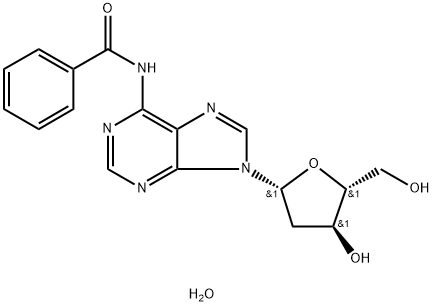
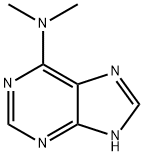
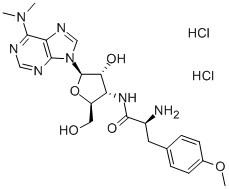
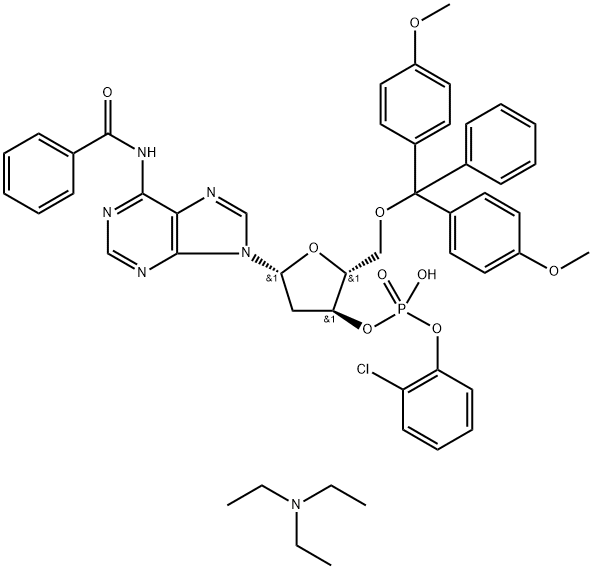
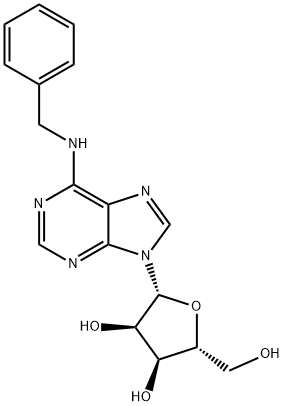
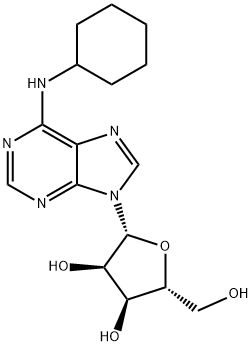
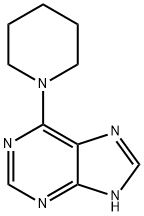
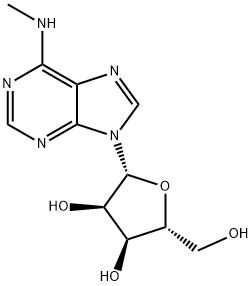
You may like
-
 6-(Methylamino)purine, 98% CAS 443-72-1View Details
6-(Methylamino)purine, 98% CAS 443-72-1View Details
443-72-1 -
 N-Methyl-7h-purin-6-amine 95% CAS 443-72-1View Details
N-Methyl-7h-purin-6-amine 95% CAS 443-72-1View Details
443-72-1 -
 N-Methyl-7H-purin-6-amine CAS 443-72-1View Details
N-Methyl-7H-purin-6-amine CAS 443-72-1View Details
443-72-1 -
 1975-50-4 98%View Details
1975-50-4 98%View Details
1975-50-4 -
 2-HYDROXY BENZYL ALCOHOL 98%View Details
2-HYDROXY BENZYL ALCOHOL 98%View Details
90-01-7 -
 14714-50-2 (2-Hydroxyphenyl)acetonitrile 98+View Details
14714-50-2 (2-Hydroxyphenyl)acetonitrile 98+View Details
14714-50-2 -
 118753-70-1 98+View Details
118753-70-1 98+View Details
118753-70-1 -
 733039-20-8 5-broMo-2-chloro-N-cyclopentylpyriMidin-4-aMine 98+View Details
733039-20-8 5-broMo-2-chloro-N-cyclopentylpyriMidin-4-aMine 98+View Details
733039-20-8